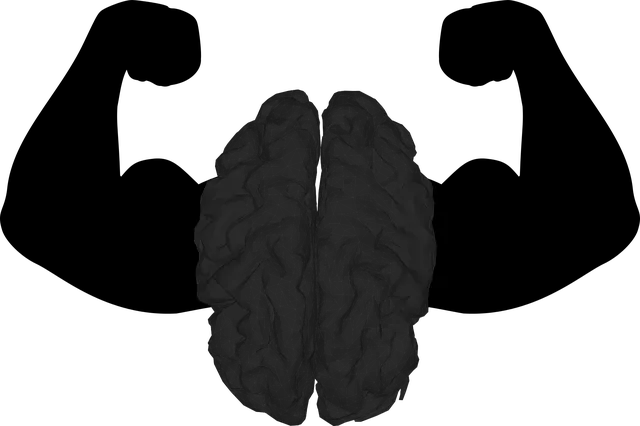In today's fast-paced world, self-assessment tools are crucial for promoting mental wellness, as emphasized by the professionals at Lakewood Kaiser Permanente (LKP) mental health center. With increasing stress and work-life imbalances affecting many, LKP offers accessible and effective tools that encourage self-reflection and personal growth. These tools, like Emotional Healing Processes, empower individuals to identify concerns, track progress, and make informed decisions about their well-being, also enhancing healthcare provider training. Effective mental wellness assessment tools should detect symptoms and underlying factors, incorporating Trauma Support Services, Stress Reduction Methods, and Emotional Well-being Promotion Techniques. LKP integrates user feedback and data analysis to develop and refine these tools, ensuring they remain relevant and culturally competent. They leverage technology with online platforms and mobile apps for personalized mental wellness journaling and resilience building, leading to improved patient outcomes as indicated by positive LKP mental health center reviews.
- Understanding the Need for Self-Assessment Tools in Mental Health
- Designing Effective Mental Wellness Assessment Tools
- Integrating Feedback and Data Analysis for Continuous Improvement
- The Role of Technology in Enhancing Self-Assessment at Lakewood Kaiser Permanente Mental Health Center
Understanding the Need for Self-Assessment Tools in Mental Health

In today’s fast-paced world, self-assessment tools play a crucial role in supporting mental wellness. As a professional working at the Lakewood Kaiser Permanente mental health center reviews highlight, many individuals struggle with managing their emotional well-being due to stress, work-life imbalances, and various other factors. This has led to an increased demand for accessible and effective tools that promote self-reflection and personal growth.
Self-assessment tools, such as those used in the Emotional Healing Processes, offer individuals a means to actively participate in their mental health journey. They empower folks to identify potential areas of concern, track progress over time, and make informed decisions regarding their well-being. Moreover, these tools can enhance Healthcare Provider Cultural Competency Training by enabling professionals to better understand patient experiences, especially when addressing issues like burnout prevention, which is prevalent among care providers.
Designing Effective Mental Wellness Assessment Tools

Developing effective mental wellness assessment tools is a multifaceted process that requires careful consideration and expertise. At Lakewood Kaiser Permanente mental health center, for instance, reviews highlight the importance of tailored interventions. These tools should not only identify symptoms but also assess underlying factors contributing to an individual’s mental health status. Incorporating aspects like Trauma Support Services, Stress Reduction Methods, and Emotional Well-being Promotion Techniques ensures a holistic evaluation.
Designers must strike a balance between accuracy and accessibility, ensuring the tools are user-friendly while maintaining clinical rigor. By integrating best practices from evidence-based therapies and leveraging technological advancements, assessment tools can become more engaging and precise. This approach not only facilitates early intervention but also empowers individuals to take charge of their mental wellness journeys, much like the comprehensive services offered at Lakewood Kaiser Permanente.
Integrating Feedback and Data Analysis for Continuous Improvement

Integrating feedback from users and meticulous data analysis is a cornerstone of developing effective mental wellness self-assessment tools. At the Lakewood Kaiser Permanente mental health center, reviews highlight the importance of continuous improvement based on user experiences. By gathering and analyzing feedback, healthcare providers can tailor their services to better meet individual needs, ensuring that emotional well-being promotion techniques remain relevant and impactful. This iterative process involves regularly updating assessment tools to incorporate new insights, best practices, and emerging research in mental health.
Moreover, combining qualitative data from user reviews with quantitative analysis of assessment outcomes enables a holistic understanding of tool performance. Such insights are invaluable for enhancing cultural competency among healthcare providers, as they can identify biases or gaps that might affect the accuracy or accessibility of the self-assessment tools. Through ongoing training and education focused on these areas, mental health professionals can foster more inclusive practices, thereby improving patient experiences and outcomes, particularly in diverse populations.
The Role of Technology in Enhancing Self-Assessment at Lakewood Kaiser Permanente Mental Health Center

At Lakewood Kaiser Permanente Mental Health Center, technology plays a pivotal role in enhancing self-assessment and overall mental wellness. Their innovative approach leverages digital tools to empower individuals in managing their mental health effectively. One notable example is the implementation of online platforms that offer personalized mental wellness journaling exercise guidance. These platforms allow patients to track their moods, emotions, and behaviors over time, fostering self-awareness and providing valuable insights for therapists during sessions.
Additionally, digital interventions focused on resilience building have been integrated into the center’s offerings. Mobile applications designed with mood management techniques in mind enable patients to access therapeutic tools anywhere, anytime. This accessibility is particularly beneficial for those seeking discreet support outside traditional therapy settings. By combining these technological advancements with professional guidance, Lakewood Kaiser Permanente Mental Health Center reviews consistently highlight improved patient outcomes and enhanced self-assessment capabilities.
Mental wellness self-assessment tools play a pivotal role in empowering individuals to take charge of their mental health. By designing effective tools, integrating continuous data analysis, and leveraging technology, such as the innovative practices at Lakewood Kaiser Permanente Mental Health Center, we can significantly enhance access to mental healthcare. These strategies not only support individual well-being but also contribute to a more holistic and inclusive approach to mental health management, backed by evidence-based practices. As these tools evolve, they hold immense potential to improve mental health outcomes worldwide, as evidenced by the positive impact of Lakewood Kaiser Permanente mental health center reviews.






